Stellan Skarsgård has had a long and enormously successful career, balancing Nordic indies with some of the biggest blockbusters of all time. This month, he's starring Lars von Trier's controversy-baiting, sex-filled four-hour epic, Nymphomania. Empire sat down with the good-humoured Swedish thespian to talk about his new film, as well as some highlights from his impressive back catalogue.
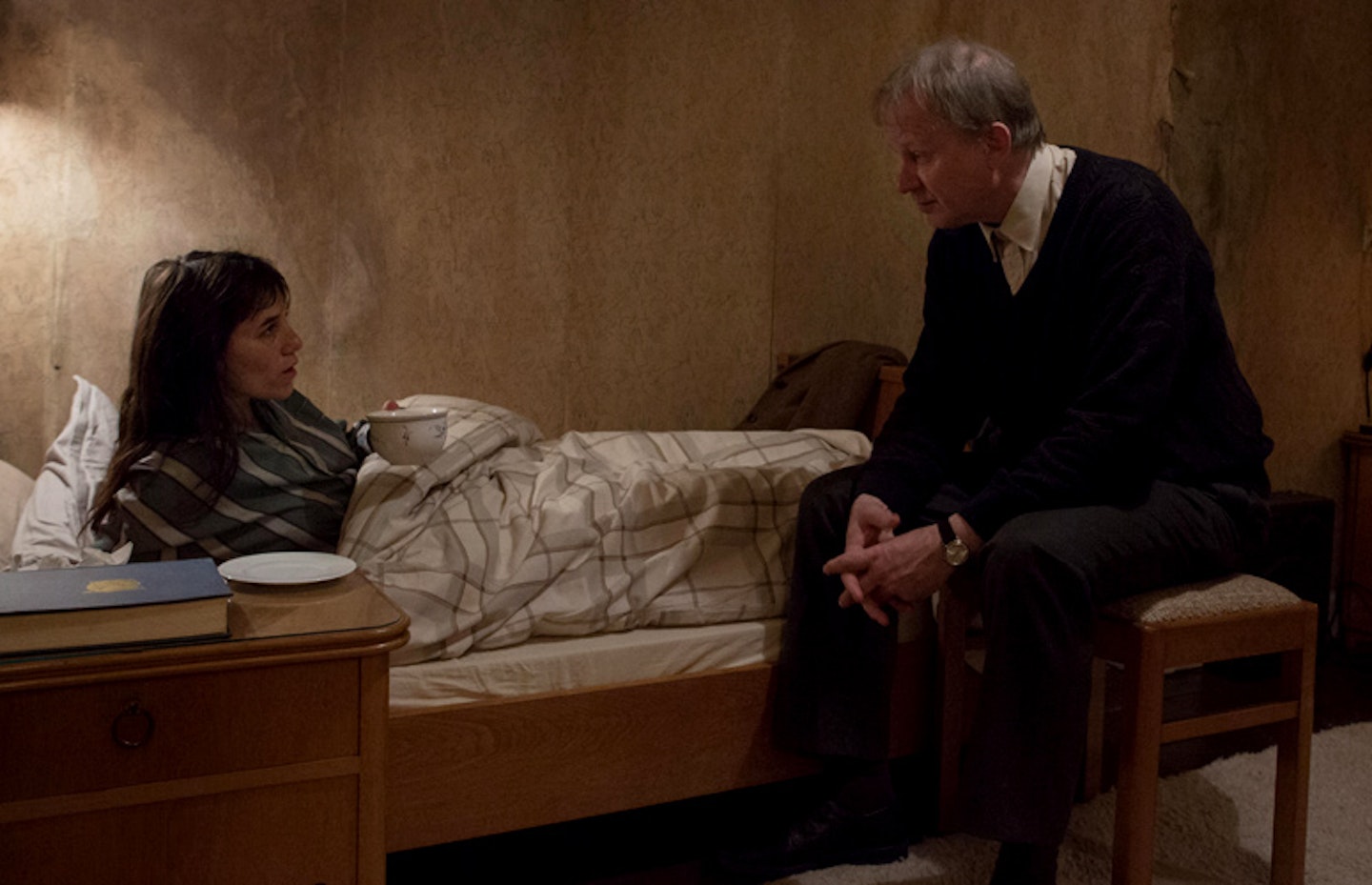
Those two roles – mine and Charlotte Gainsbourg’s – they’re also two sides of Lars, in a way. Because he is the nerd that I’m playing, but he’s also the vulnerable person struggling with life that Charlotte is playing. But of course, I am listening to the story and helping the audience to listen to the story. And you can have a lot tougher job than being in a bedroom with Charlotte Gainsbourg, listening to her for two weeks.
My character is pretty silly in some ways. He knows about everything, but everything he knows is from books. He’s never experienced life, and he’s a virgin. And that’s a very interesting idea. So he tries to grasp what Charlotte’s character is saying, and all the associations he has are to the only reference he has, which is books. So he’s struggling to understand.
I wanted him to come off as sympathetic – which he is. He’s truly caring, he’s empathetic and he’s listening to her. And I think even in the end, he’s sympathetic. He misunderstands something. It shows that in spite of four hours of film, he hasn’t quite understood. Which is very human.
It’s not realism. If it was a kitchen [sink] realism drama, I would probably not feel comfortable with it. But in a Lars fairy tale, I’m absolutely comfortable with it. All his films are like fairy tales. Uncle Lars sits us down and tells us a story: “Once upon a time, there was a nymphomaniac…”
Spoiler alert! Here Stellan discusses the very end of the film. Highlight the text to read...
I think, since I don’t believe in capital punishment, and I definitely don’t believe in capital punishment for just pulling out your fucking dick… I can to a certain extent understand her, but it doesn’t justify her actions. And his action is not justifiable either, but it’s understandable. It’s like most of the things we do as human beings.
Of course, I think it’s tragic. But in a way, it’s Lars’ way of pulling the rug from the audience all the time. You should not get what you expect. So he has to do that. It’s logical from the kinds of films he makes, and his point of view – it’s logical. It doesn’t mean that he’s cynical as a person, and thinks that you cannot trust anybody and everybody’s an asshole when you scrape the surface a little; that’s not his view on humanity. But it is the area of mankind that he keeps investigating. And it juices up his stories, of course.*
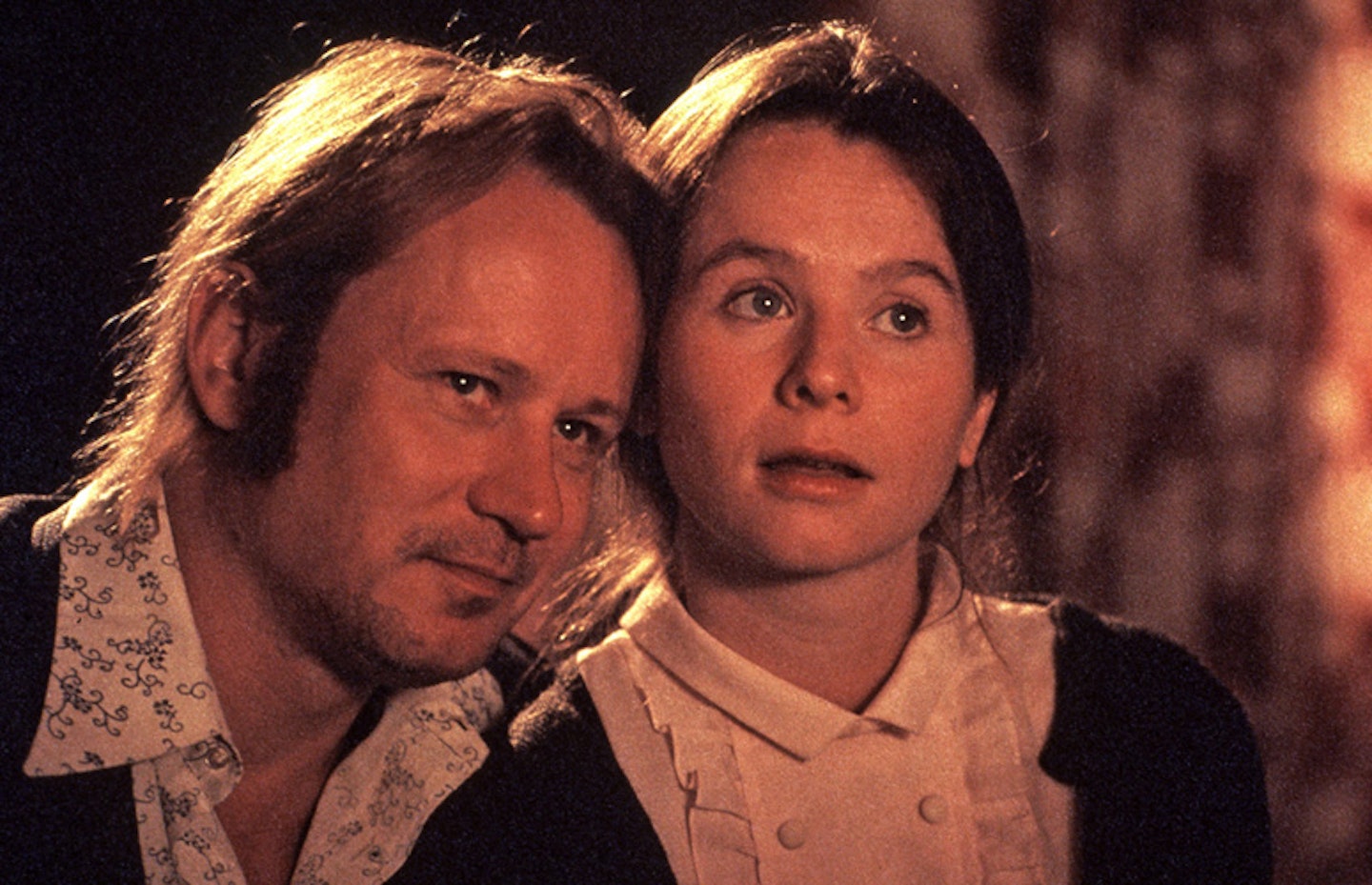
I saw his first film, Elements Of Crime, at a film festival somewhere, and I saw an extremely skillful director. And I said to myself, “I’d like to work with this director when he gets interested in people.” Because his first five films, he was not interested in people, or he didn’t manage to give human life to his films. Europa is technically a masterpiece, but it’s ice cold. You don’t give a fuck about those characters. And he noticed it himself.
I got sent the script from a producer, and I thought it was fantastic. But of course it is a fairy tale too, and I said to Lars, “This is like Raiders Of The Lost Ark, but in terms of melodrama,” because each scene was like the peak scene in any melodramatic film. And it’s very thought out, in a way. But the way he shot it – and with wonderful Emily [Watson] and Katrin Cartlidge, who can bring life to anything – you don’t see the construction, you don’t see the thought behind it, you don’t see the tricks. Because life overpowers it. And when you don’t see the skeleton, then it’s all flesh to you.
First time I met him was in Copenhagen, and the first thing he says to me when he opens the door is, “I don’t like physical contact.” So I hug him immediately. And he’s like a caught fish in my arms, he wriggles, but I kept holding him until he relaxed. He was more awkward with actors back then. Now he is extremely relaxed with people and extremely relaxed with actors. And he just lets them loose, and then he tells them to do something completely different. He doesn’t interfere much with the actors.
I mean, all directors are control freaks, but he realised that he actually has the control in the editing. And controlling the actors on the set was counter-productive, because that would kill all the life in it. When he did Europa, there wasn’t one moment with the actors that he hadn’t decided at home, at his desk. That kills everything.
[There was a sign that said] “Make Mistakes”, and made everybody not only make mistakes, but you become more courageous and you try and take chances, and you test things out, and you can suddenly take a pause for half a minute in the middle of a take and then go on. Even if you don’t use the pause, it creates new things and you breathe into the scene, which brings more life into it.
In Dogville, I raped Nicole Kidman successfully five times, and then Lars said, “Can’t you play it like a romantic comedy?” And I thought, “What?” And I was trying to think, “Hugh Grant... How am I going to do this?” And I played the scene like a romantic comedy, and of course the scene doesn’t work. But a few of the lines – because you have a totally different angle of attack – become really good and interesting. And he snips them and uses them.
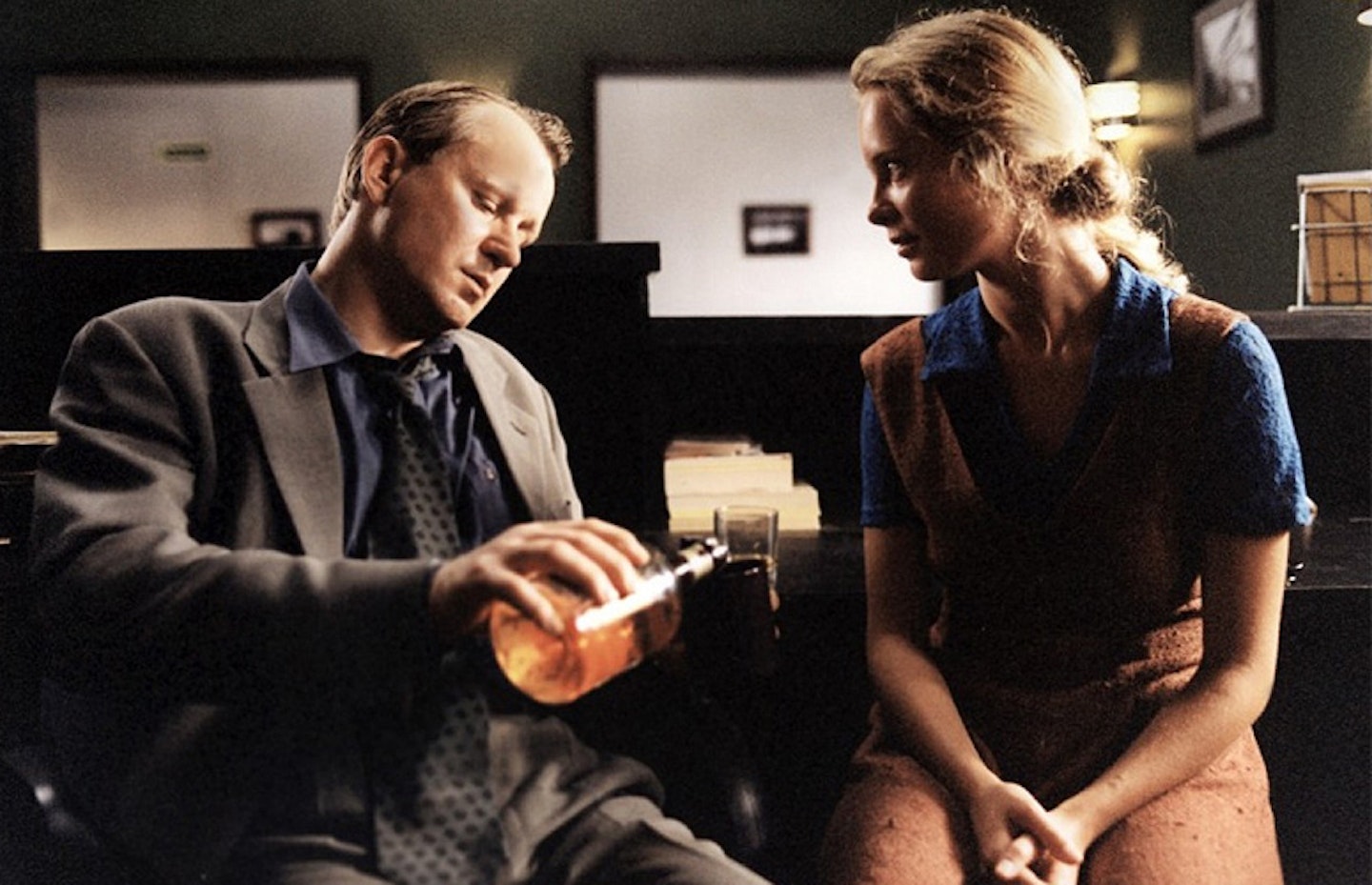
It was remade by Christopher Nolan. If it’s a film made by a fantastic director that is remade in Hollywood, chopped down, everything controversial is taken out, and you have a generic director reshooting it, then it’s sad. But this was a very good film by Erik Skjoldbjærg, who is a great director. And then Christopher Nolan comes, who is a great director, and of course it’s fine.
It’s the same thing as with Fincher doing a remake of The Girl With The Dragon Tattoo. I don’t care. If something can be added to the story, I’m fine with it. How many remakes have we seen of Hamlet onstage? When Hollywood says, “Hey, that film was good,” and think it’s just the story, then they’re fucked. When it’s an auteur director, you have to have someone who can add his personal soul to it, a personal touch to it, to make it worthwhile.
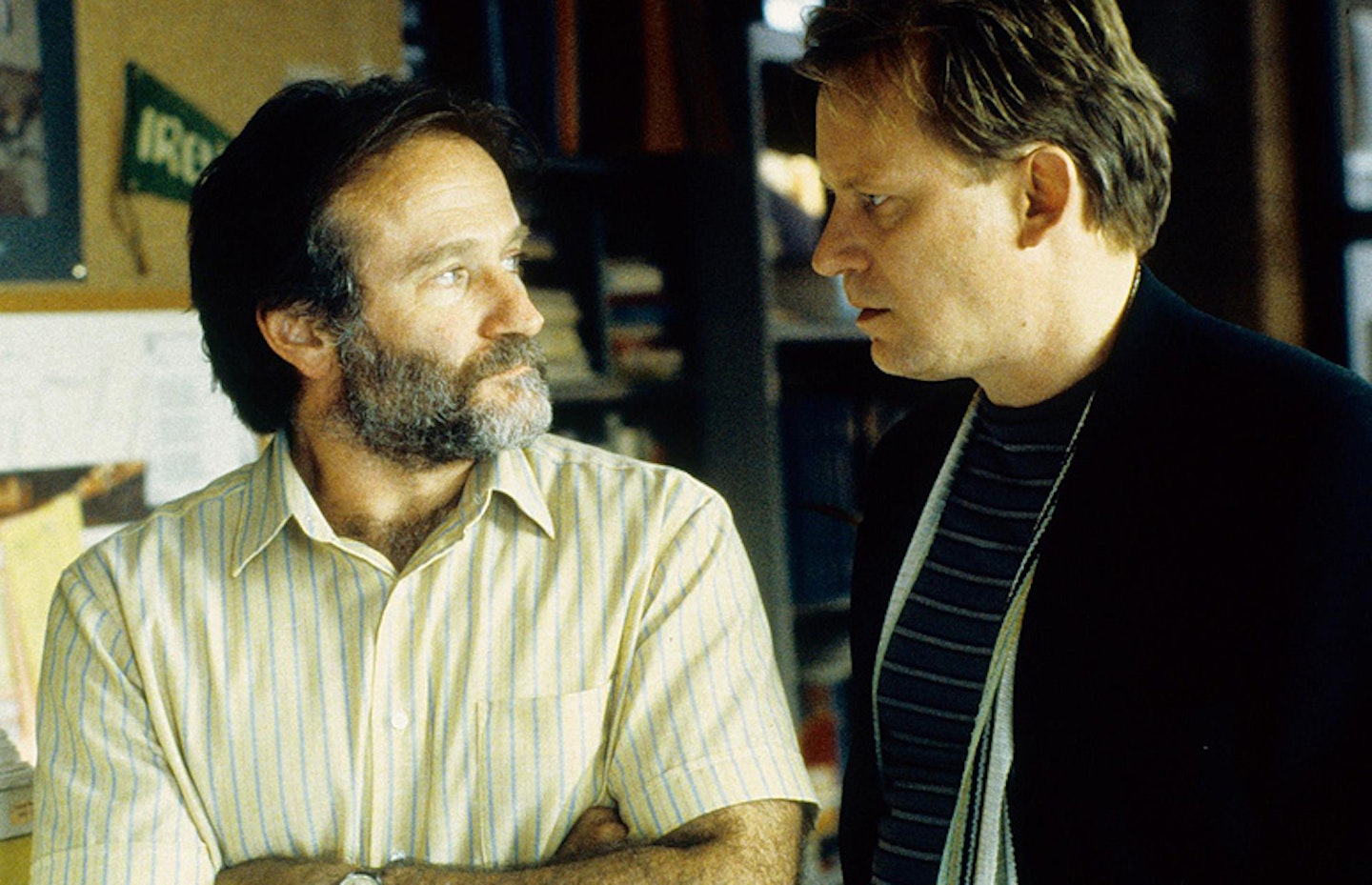
I didn’t know [Matt Damon and Ben Affleck]. I knew who Robin Williams was, but I didn’t know them. When I talked about it, I said, “Well, I’m going to do this small little indie film up in Canada that’s really cool.” And that’s what it was. But it was a very good script, and Matt and Ben are extremely smart and lovely people to work with, and absolutely without any pretensions. There wasn’t anything you could not try, or try to change, or play with the material.
And then we had Gus Van Sant, for fuck’s sake, who is a wonderful director; he’s another director that doesn’t interfere too much with the actors. He says, “What do you want to do?”, and then you try it out, and then he says, “Ok, I’ll put a camera here,” and then you do a take and he smiles and laughs and says, “Yeah, let’s do it again!” And you have the feeling that you shoot it again not because you fucked up, but because he wants to see it again. And you can get bolder and bolder, and especially when you work with someone like Robin Williams, then you can be sure that every take is different. Even the dialogue is different, very often. So he ended up with enormous material. It was a beautiful time, that shoot.
What did I make of its success? I was happy for Ben and Matt, and I was happy for Gus. Suddenly Gus had the possibility to do whatever he wanted in Hollywood. And of course he went and did the film school dream: a total remake of a Hitchcock film, frame by frame, just to see if it worked! I wouldn’t have given him money to do that, but [he said], “Hey, I can do whatever I want, so let’s do something I enjoy!”
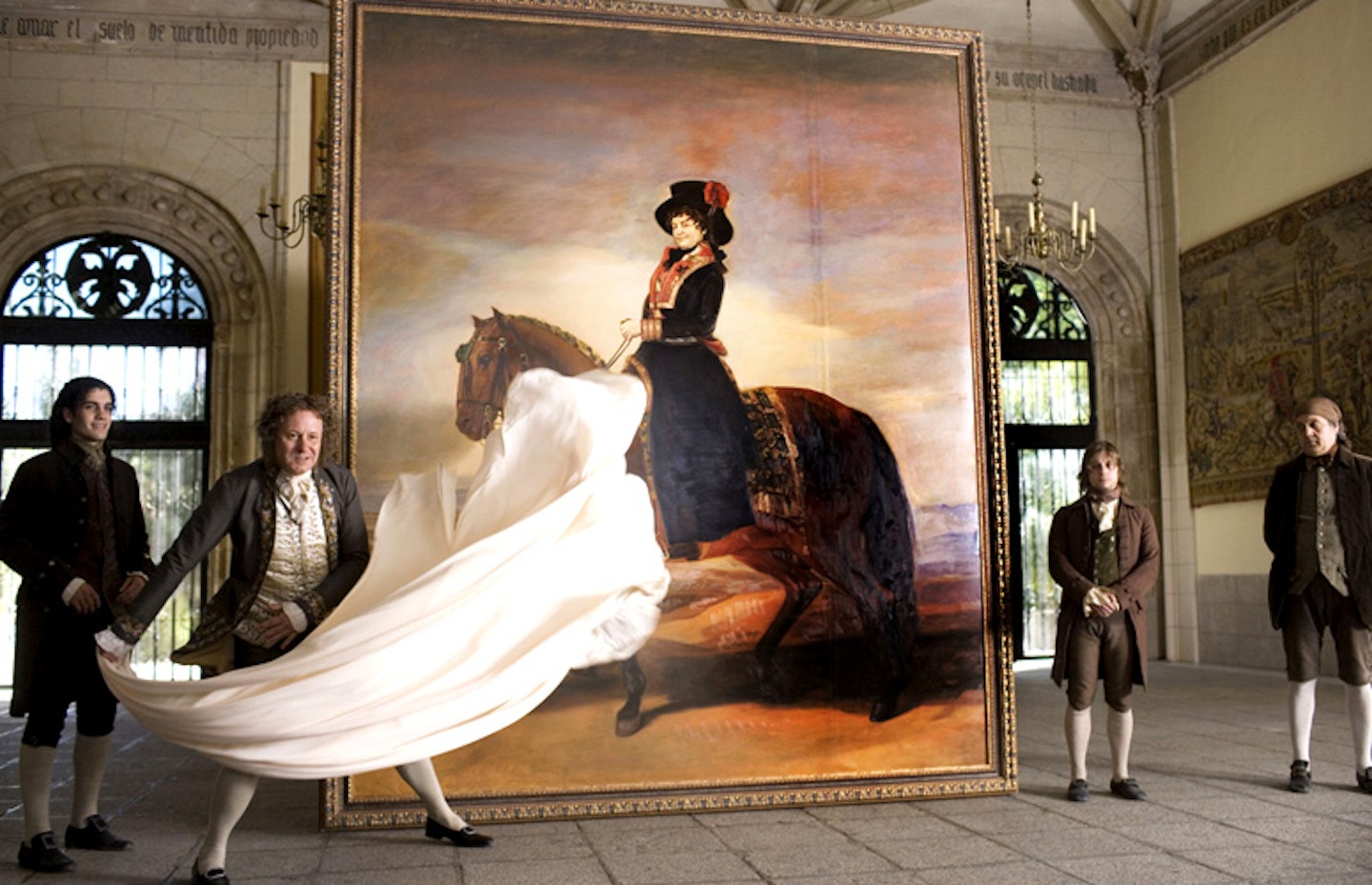
Of course I was dying to work with [Milos Forman], but also I love Goya. I thought the script was really, really good. It’s Jean-Claude Carrière and he’s a fantastic writer. It was extremely intelligent. Why it didn’t become a big hit, I think it’s because it didn’t have an emotional centre which made it easy for the audience to relate to it, and a character that brought the audience into the story. Because it was, in a way, an intellectual construction.
But I had a wonderful time, and working with Javier Bardem and Natalie Portman, you can’t be happier. And it was also fun because I was such an admirer of Goya, and this film, for Goya, was in two episodes. It was one young Goya and one old Goya. And I tried to do those Goyas as he was painting at the time. So I got all the inspiration from the naïve tapestries that he had done, which are very cheerful and almost too sweet, and then the second half, all my associations were from the Pinturas Negras – the fantastic black paintings that were expressionist before the word was invented. They’re incredible.
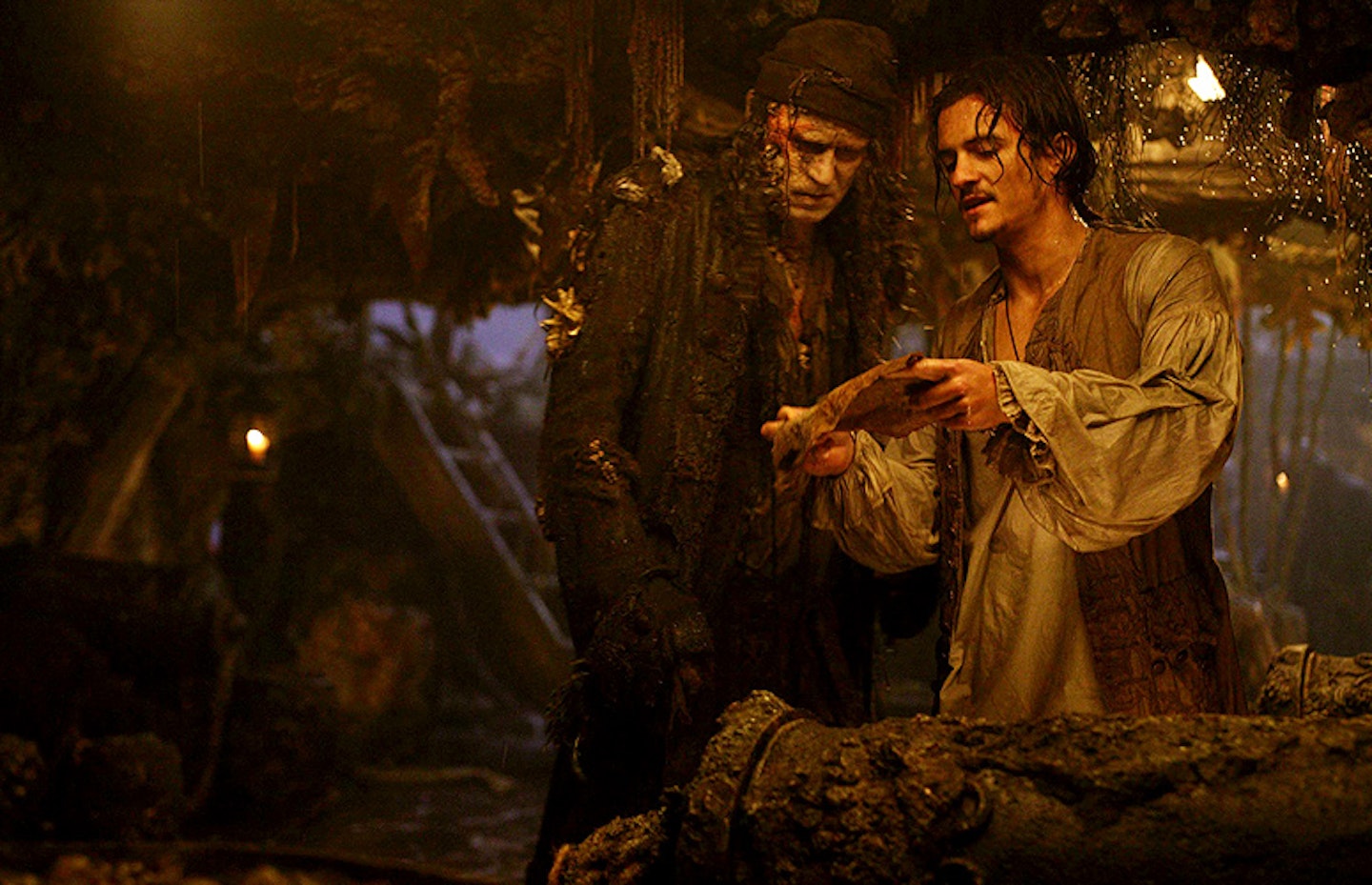
I’ve worked with a lot of extremely talented people, and Gore Verbinski’s one of them. He’s also something of an auteur; when you work with him, even if it’s a hundreds-of-millions dollar budget, around the camera you feel like you’re on an independent film. He gives space to the actors, and he’s really interested in something more than just doing the money-making machine. The success of the first film was doubted by Disney! They tried to fire him several times, they tried to fire Johnny Depp, because it wasn’t the cliché of a pirate film. And the success of it was [that] there were actors going crazy onscreen and having a lot of fun, and the audience loved it.
So after that, he was allowed to do whatever he wanted with the films. And if you look at number three, there’s a sequence with Johnny Depp in the salt desert, the ship is in the desert and there’s crabs everywhere. There’s no dialogue, it doesn’t move the film forward at all. It’s a fucking Salvador Dalí sequence! It’s fantastic, and I was ecstatic when I saw it: “Jesus Christ, how the fuck?” I mean, it cost millions to do, and he gets away with that in a Disney film because they [the studio] didn’t understand: “Yeah, he probably knows something we don’t know.” So there I worked with a Dadaistic film director within the Hollywood system.
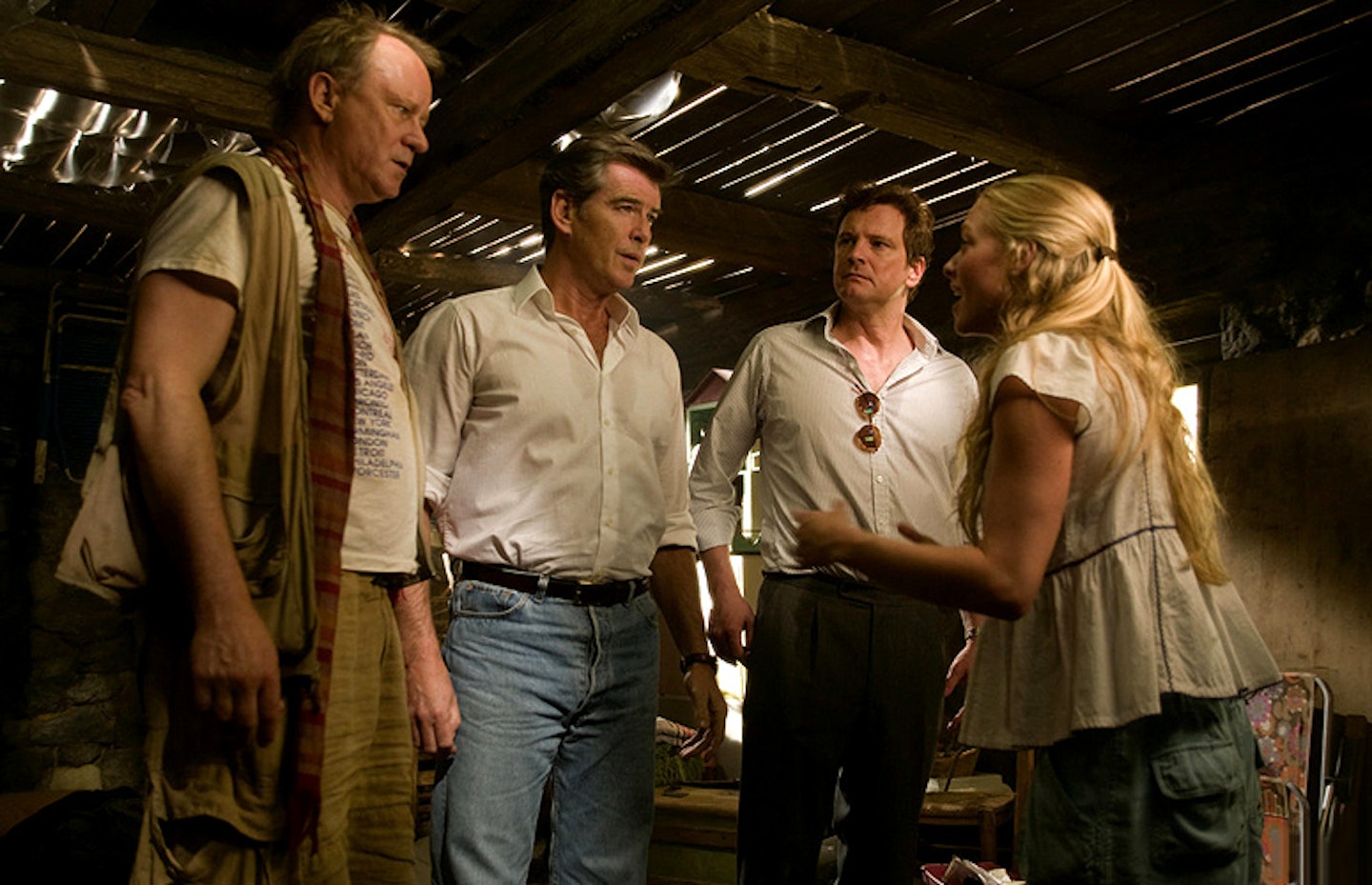
I was surprised I was offered it, of course. I’m not a singer, I’m not a dancer. At first I was like, “What the fuck? Why are they hiring me and Colin [Firth] and Pierce [Brosnan]?” And it was a film that was written by women, directed by women, designed by women, produced by women – it was an all female production. And I didn’t quite understand, but then I understood: they don’t care if we can sing and dance – we’re the bimbos. We were what women normally are in male films, which was a fantastic experience, because they didn’t give a shit about psychological realism. We were supposed to be there and to be looking good and be a little silly, which is normally the role for a woman.
Once you got over the shock, it was a relief, because you were totally without responsibility! But it’s also fair. And then when I saw it on stage, I realised the quality of it wasn’t perfection at all; the quality was generosity. I don’t know if I should call it a film, even. It’s a party, and the audience is invited – and they enjoy it. The lack of brilliance in the performances makes it more inviting to the audience, like they could also do this. Anyone can do it.
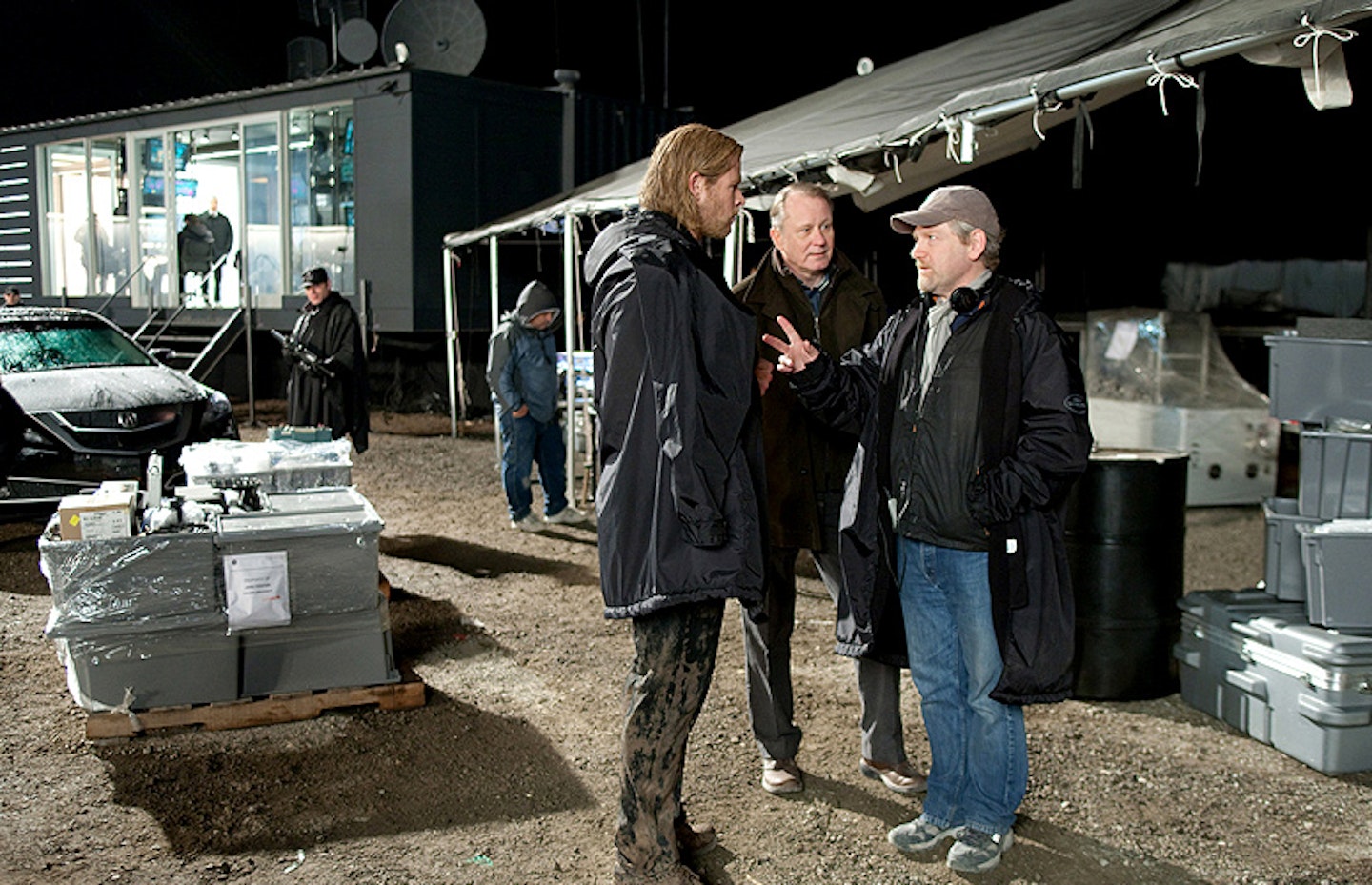
I wasn’t familiar with the Thor comic character. I remember one of the first meetings I had with the heads of Marvel, I said, “Comic books – does that really pay?”, and they all looked at me like I was insane. I didn’t even know it was such big business. One of the reasons I took that one, since I didn’t know anything about it, was of course Kenneth Branagh. I wanted to work with him.
But then you sign up with Marvel, which is also interesting, because it’s a huge, very successful machine, but it’s a very small company. It’s like five people or something, and they run it hands-on. If you work for a big studio, the executives, you never see them. They mail in and say, “You cannot say that, you have to say this,” and disappear. But those guys, I’ve got the phone number to Kevin Feige. I can call him and say, “This scene sucks!” And he deals with it. They’re very good at what they’re doing, and they know the comic book universe that they are creating very well, and they know their fans. I have a lot of fun working with them.
I was worried when I signed up for the first one that I had to sign up for five films, or whatever it was. But then I liked it so much, so… They have me on contract, so if they want me [again], they can bring me in. But I’m getting more and more expensive, so eventually they’ll have to kill me off!
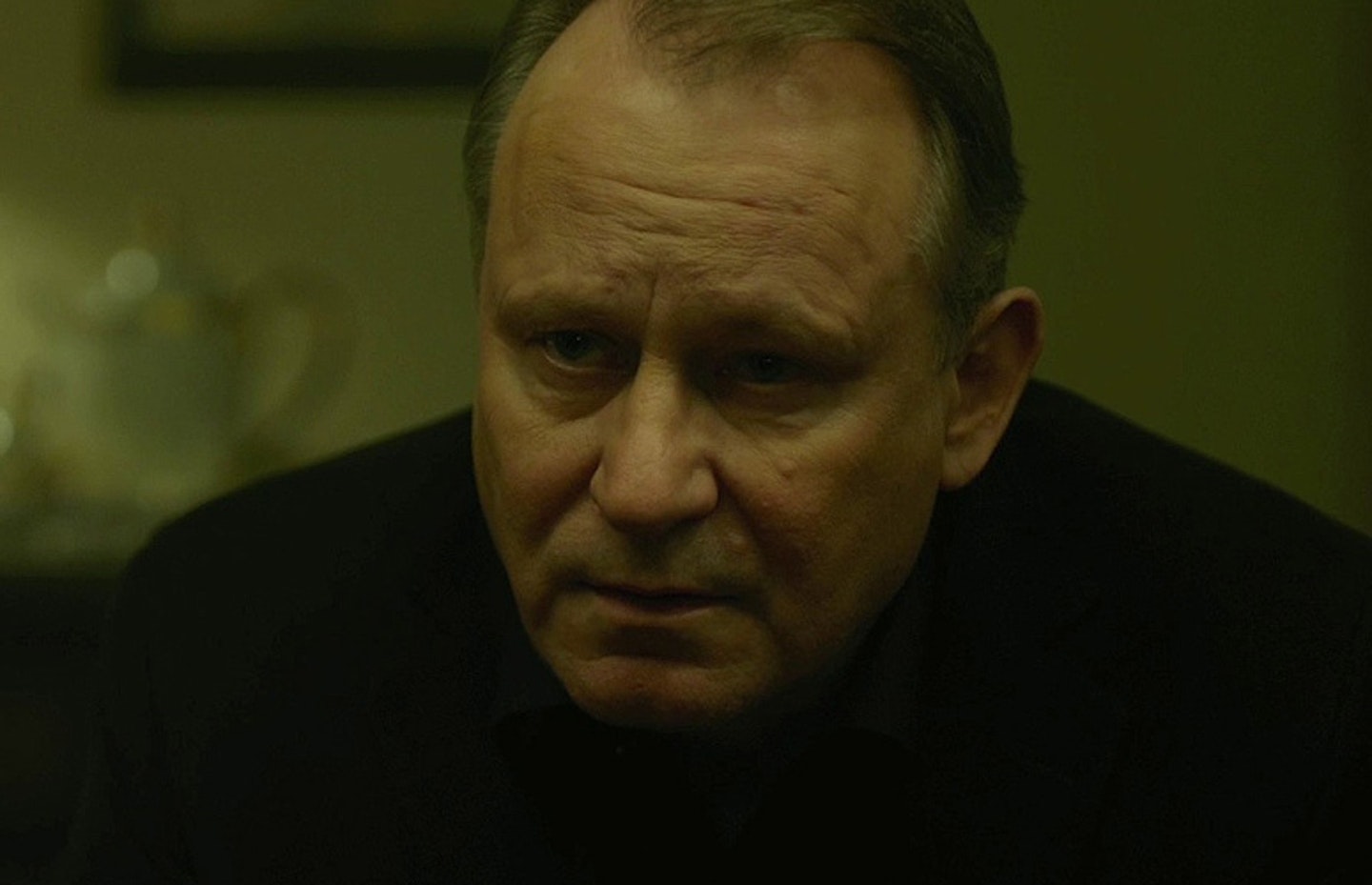
When you work with Fincher, he’s the only independent film director that can have a budget of a hundred million. I loved him. He’s controlling, but what he really controls is the framing. The actors have an enormous freedom. When we met, he said, “You know it’s not going to be fun working with me?” And I said, “It better be. I always want to have fun.” “Yeah, but I do like 30, 40 takes of each set-up.” “Well, let’s have fun doing that then.”
And I really could enjoy it, because I don’t mind doing 30, 40 takes, because I can fuck up 30, or 20, and I can try different things. And also, it does something to you. I’m very skilled, but to me it’s important to lose control, to a certain extent. And when you get worn down by 15 takes, you start forgetting lines and everything, and new things start to appear in front of the camera. Even if you play a person who isn’t vulnerable, it ruffles you up. Strange things start to happen. The script, the story, everything is so well thought out, and what you have to add to it is the irrationality of life. And you don’t sit down and rationally invent irrationality. I liked that a lot.
That’s what I’m looking for – when I get surprised in front of the camera, then I’m really happy.
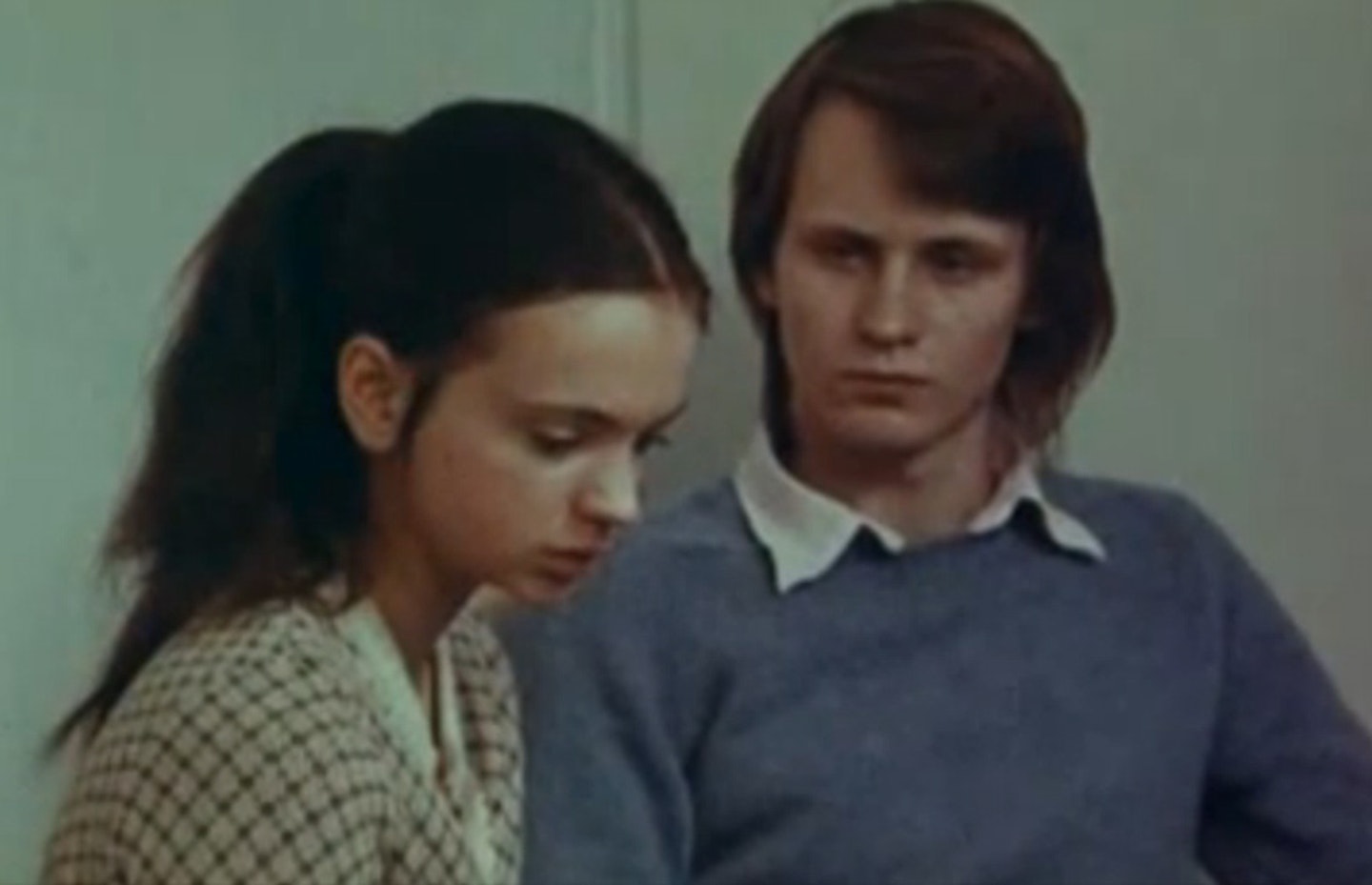
[This is] very interesting, because it’s a film about a man listening to a nymphomaniac telling her story. If this film [Nymphomaniac] is the end of my career – I hope it’s not – then it would be very symmetrical! It was a director who was not untalented, and who had really interesting psychological ideas about it, but the producers were very different, and they wanted to make a sexploitation film. It’s not worth seeing.
Nymphomaniac is released on February 21 in the UK and March 21 in the US. Anita: Swedish Nymphet is available on DVD, but Stellan wouldn't recommend it.